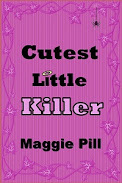Peg Herring's Blog, page 5
June 16, 2021
You Gotta Love Suggestions...or Not
People love to tell you what you should do. I guess it's part of being human. Even if they have no idea where you are and what you need, they have suggestions for your future. Suggestions that are often horribly wrong.
Sometimes it's almost willful. I saw a post on social media recently asking for recommendations for a specific type of book. She wanted to read about an era of history, but the poster specified she did NOT enjoy reading series. She got no less than three suggestions for series that were "really good."
 As my writing career sort of lurches along, people like to tell me what I should be doing. Writing wasn't something I planned, and my first book was a historical novel. More followed, but then other ideas came along, so I wrote contemporary mysteries and what I call vintage stuff, sixties-era stories. What that meant was that Peg's books were kind of scattered in terms of mystery types.
As my writing career sort of lurches along, people like to tell me what I should be doing. Writing wasn't something I planned, and my first book was a historical novel. More followed, but then other ideas came along, so I wrote contemporary mysteries and what I call vintage stuff, sixties-era stories. What that meant was that Peg's books were kind of scattered in terms of mystery types.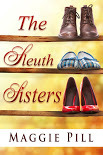 When I decided to try writing a cozy mystery, I invented a pseudonym, not knowing how well I would fare in that sub-genre. I didn't think about the fact that Maggie Pill would need her own social and IRW presence. I had to practice answering to that name at conferences and checking the books at events to be sure I signed the right name. It's work, but still, Maggie's fun, and she has lots of fans.
When I decided to try writing a cozy mystery, I invented a pseudonym, not knowing how well I would fare in that sub-genre. I didn't think about the fact that Maggie Pill would need her own social and IRW presence. I had to practice answering to that name at conferences and checking the books at events to be sure I signed the right name. It's work, but still, Maggie's fun, and she has lots of fans.
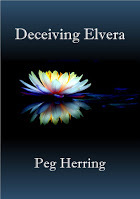 While there is crossover in writing style, Peg's work has generally been traditional mystery, a little more serious, while Maggie writes the lighter stuff. Last year, with Deceiving Elvera, Peg moved into women's fiction, which is considered more "literary" than mystery. The book is a story of a lifelong friendship, but woven in are social questions about refugee relief, immigration, and people smuggling. Not exactly a light novel.
While there is crossover in writing style, Peg's work has generally been traditional mystery, a little more serious, while Maggie writes the lighter stuff. Last year, with Deceiving Elvera, Peg moved into women's fiction, which is considered more "literary" than mystery. The book is a story of a lifelong friendship, but woven in are social questions about refugee relief, immigration, and people smuggling. Not exactly a light novel.
The newest series, the Max & Lucy Mysteries, seemed to fit Maggie better, so Book #1, CUTEST LITTLE KILLER, will be her contribution for 2021.
Peg is currently working on another women's fiction book, Sister Saint, Sister Sinner, and here's where we come to the advice thing. Twice now I've mentioned to acquaintances that the new book is different and I'm not sure how readers will react. The breezy response in both cases "You should just use a pen name."
Sure. Invent a third name. Make her a Facebook page, a Twitter page, create a blog for her, and start building her a newsletter list so she can send out information periodically. Ignore thousands of readers who know Peg Herring's work and might buy the new book because they liked a former one. Not to mention the mental effort it would take to show up as three people at public events.
It's funny how easily other people can "solve" your problems. If you're reading this and you think, "Well, she's ungrateful. They're just trying to help," I don't mean to be. But here's my thought: Advice is easy to give when you haven't got a clue what you're talking about.
May 6, 2021
The Ubiquitous--and Erroneous--"They"

A friend told me the other day she'd started a new British mystery and found it had tons of swearwords and name-calling. Her question to me was "Do you think they really talk that way over there?"
Talk of "they" bothers me. Yes, "they" had different beliefs than ours in 15th century Europe, but I don't for a moment think everyone believed they'd go to hell if they had sex on Sunday. If those people believed everything the Church said they shouldn't do, there wouldn't have been any sinfulness, but murder, theft, fornication, and other sins went on, as they do now. It simply paid to keep quiet about what you did, what with the Inquisition and all.
I once hosted a teacher from Moscow who was disappointed by our small town. In Russia, she'd been told that in America "they" go shopping every day and night-clubbing every weekend. Spending a year in a county with no mall and not even a stoplight wasn't what she'd pictured when signing up to visit.
The question in all of this is who is 'they'? Of course there are British people who swear a lot. There were once pious Spaniards who believed every word their priest said. And we know there are Americans for whom a Saturday night without being "out" is unthinkable. But every society has a range, and while "they" might represent the majority, they probably do not.
Impressions we have of historical groups often come from sources that are either biased or uninformed. History was written by scholars, since they could write, but most scholars were monks, with definite views on sin and sinfulness. History often became more a moral lesson than a factual account. Scholars also had to worry about pleasing their masters (unless they didn't care if their heads remained between their shoulders). And new stories were built on older stories without any attempt to confirm the truth of the original. Consequently, there might be hardly any truth in a "history" at all.
My characterization of Macbeth in Macbeth's Niece for example, is historically incorrect. Shakespeare needed a villain to represent unbridled ambition, so he chose a rather ordinary Scottish king and turned him into a murderer. While I added notes at the end of my book to explain the truth of Macbeth's character, I'm afraid his name will always be associated with evil.
In current times, we get impressions from TV and form conclusions based on them, often wrongly. We see bands of screaming zealots and conclude, "The **s hate Americans." It's been proven, over and over, that the vast majority of people on this earth have no impression of Americans at all. We don't matter to them or their daily lives. Those who do hate us probably have their reasons, but they're based on the very practice I'm writing about: forming impressions with insufficient information.
When we see news reports, TV shows, and movies that reveal slices of life in other places, we should keep in mind that's what they are. The people you see aren't "they." Motives differ, and heaven knows we tend to become a little nicer when there's a camera filming. The reporter went there for a story, and he or she chose whom to interview based on ideas of how that story would go. If the neighbor next door had been chosen, the result might be completely different. Creators of content choose what interests them, and what they think will interest you.
Before I actually visited an Arab nation, my impressions were mostly wrong. Once there, I saw people going about their lives, shopping, having coffee with friends, trying to keep up with their kids, all the things I see here at home. The clothing and customs were different, yes, but the bottom line wasn't.
What I'm saying is that people are people, no matter the time or the place. There are crooks who cheat, and honest types who never would. There are saints who'd die for you and sinners who'd steal your last dime. There are braggarts and truth-tellers. Distrustful types and friendly sorts. Silly asses and wise folk. People who'd talk your arm off and people of few words.
Don't base your conclusions on what "they" say about what "they" do. Figure it out for yourself.
May 3, 2021
Audio...Again
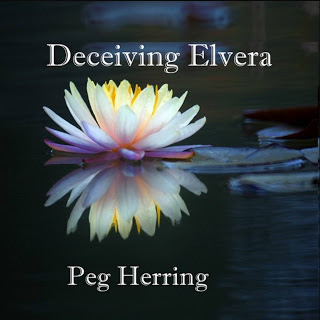 Deceiving Elvera is now available as an audio book as well as print and e-book formats. Here's the link: https://www.amazon.com/Deceiving-Elve...
Deceiving Elvera is now available as an audio book as well as print and e-book formats. Here's the link: https://www.amazon.com/Deceiving-Elve...Let me say something about narrators in general, and Naomi Rose-Mock in particular. They take an author's baby and interpret it aloud, so others can enjoy it. To do this, they must be able to read well; that's a given. But in a book like Deceiving Elvera, there's a lot more to think about. The book is set in Michigan and Thailand, so I had to provide a pronunciation guide (provided for me by someone who lived in Thailand for a time) that Naomi could consult. A third setting is a cruise ship, and the crew comes from all over, so she had to switch accents from Norwegian to Australian to Texan and so on. I would bet that requires a lot of highlighting and pre-reading to be prepared for conversations.
Finally, the narrator interprets the characters and the action. Too much "color" and a character like Elvera can become so irritating that the reader is turned off. Too little, and her assertiveness--and her pain--doesn't come through. Narrators know to how speed up to raise tension and slow down to soothe the reader after an intense scene. They change their voices to suit the scene: comic, dramatic, tragic. They make decisions and take precautions I never thought about before getting involved in audio book production. Listeners shouldn't hear the turning of a page or perceive gaps where a correction was made. Narrators have to decide if they'll leave in or take out the sound of their own breathing. And they have to either attend to the technological aspects of recording or arrange for someone else to do it.
None of that sounds easy to me, so I'm thrilled that companies like Audible, studios like Cerny American, and narrators like Naomi Rose-Mock and Megan Scharlau are around to de-mystify the process.
If you're an audio-book listener, I have codes for my audio books, including this one. Authors are given them to encourage people to try their books in the hopes that they'll leave reviews when they finish. As I've said many times, a review is the nicest thing you can do for a writer, so don't be shy.
March 17, 2021
Another Newbie--Yay!
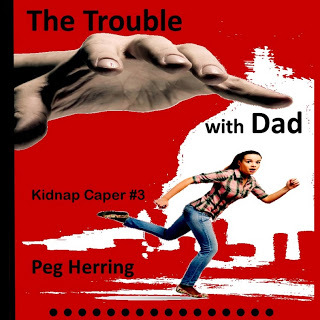
Get it on Amazon HERE
Just got word that THE TROUBLE WITH DAD is now available as an audio book. When this happens, I get codes to give away (with the strong hint that a review would be nice). If you'd like a code, email me: pegfish(at sign)yahoo.com. Give me your email address, and it'll be on its way!
For those who don't know the Kidnap Capers series, it's a three-book story arc in which a young legal secretary becomes--kind of accidentally--the head of a gang that kidnaps bad people and "encourages" them to change their ways. All are available as e-books (all distributors), print books (Amazon & Draft2Digital), and audio books (Audible/Amazon).
Book 1: Kidnap(.)org Robin becomes a kidnapper and finds out she's good at it.
Amazon: https://www.amazon.com/KIDNAP-org-Peg-Herring-ebook/dp/B01NC3F8NV
Everywhere else: https://books2read.com/u/mZ58rl
Book 2: Pharma Con Robin and the gang take down a pharmaceutical cheat.
Amazon: https://www.amazon.com/Pharma-Kidnap-Capers-Book-2-ebook/dp/B07RB6JZ79
Everywhere else: https://books2read.com/u/mKEOVE
Book 3: The Trouble with Dad Robin faces her worst opponent ever: her dad.
Amazon: https://www.amazon.com/gp/product/B08D3R4P5D
https://books2read.com/u/mqrOn6
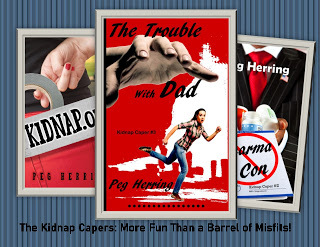
February 21, 2021
When A Character Stinks

I've sometimes abandoned reading/watching a story because of a single character. The writer/s must think this person is funny/appealing/recognizable, but for me, they're nothing but irritating. Here are three that get to me.
With apologies to cozy lovers: the amateur sleuth's zany best friend. When she constantly proposes absolutely dumb ideas, like having a seance to find out who the killer is, I'm out. Crazy buddies can be a hoot in a story, but they can also take things from slightly wacky to waaaay too unbelievable.
Other characters that stop me reading/watching are self-obsessed whiners. Even if they have good reason to be messed up, I quickly get tired of their antics. Rusty on Major Crimes is a good example, as is Anaken Skywalker in Star Wars. I never finished watching the movie that explained his background, because I couldn't stand his whiny "it's not fair" attitude. I used to read Kay Scarpetta novels, but the bitchy niece went over the top, and I didn't want to be around her anymore, even in fiction.
The one person who creates, or at least courts, disaster by disobeying logic and rules. For the old folks among us, Dr. Smith from Lost in Space is the prime example. They should have shot that guy into a black hole in the third episode. Yes, I know it's a plot device, but when it's the same character every time, he/she quickly becomes tiresome. In current mystery/cop show offerings, there are officers who go off the rails, investigating crimes they've been told not to, breaking every rule the department has on the books, and mistreating suspects. Disaster is averted when they get the bad guy, but I can't help but be concerned about all the people they bullied along the way.
I know, I know. These are accepted stereotypes for their genres. They make setting up a plot easy, and readers/watchers accept them for what they are. For me, they're deal-breakers. If you aren't creative enough to get past using mass-produced, plaster characters, I'll go somewhere else.
What type of character(s) irritate you?
February 5, 2021
How Writing Changes Reading
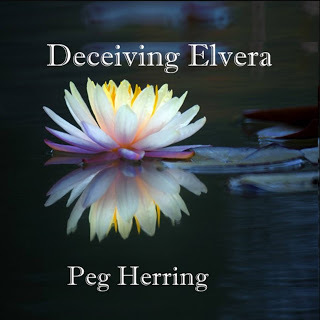 Note to audio fans: Deceiving Elvera is in the works for an audio book. The whole industry seems to be slowed by COVID 19, but I'll let you know as soon as I know.
Note to audio fans: Deceiving Elvera is in the works for an audio book. The whole industry seems to be slowed by COVID 19, but I'll let you know as soon as I know. How Writing Changes Reading
I have a friend who's a book reviewer, and she and I often talk about how reading changes a person's reading (if that makes sense, you're a reader). When you start as a kid and read for, say, five decades, you bring a lot of background to each new book you pick up. It's hard for an author to surprise you or entrance you, because you've seen it all before. I recall my daughter telling me how wonderful the Harry Potter books were, so I read the first one. My thought was, "Cute, but hasn't anyone read The Once and Future King?
Being an author is likely to make a person even more of a picky reader than a past filled with books. Writers see plot lines developing, because we've done that ourselves. In the book I'm currently reading, a better-than-average mystery, I have figured out that the bad guy has to die at the end, because it's the only way the hero will ever stop him. I'm in a similar place in my current WIP (Work in Progress). I know a certain character has to die. I'm just not sure of the "how" part yet.
Authors see weaknesses that most readers ignore. We think things like, "You needed to set the stage for that surprise a little better." Sometimes we can't swallow an author's ending, characterization, or even her whole premise. For example, I once read a well-reviewed book where the whole ending hinged on the villain pausing before killing the hero because she found a lipstick in her purse and had to try it out. In the jungle. Someone else's lipstick. I remember thinking, "My editor would never have let me get away with that!"
Generally, I don't comment publicly, but some writers get very uppity about pointing out a book's faults. In an author group I'm a member of on Facebook, a poor woman asked a simple question: How many readers would know that in the 1400's (I think), salt was stored in blocks? For a funny scene, she wanted a servant character who was not a deep thinker to mix up salt and sugar. She got lectured, lampooned, and generally berated by people who assumed she was making fun of those who have learning deficits, which she specifically said wasn't the point of the scene. Some said any reader would know that salt came in blocks. (Um, really? I once had a reader tell me she'd visited the spot where Queen Elizabeth I stayed when she came to Canada.) Some said no book should include a scene with a learning disabled servant because...I'm not sure there was a reason, just outrage. One author even told the questioner that she needed to rewrite the whole book.
While I notice things as I read that I would have done differently, I try to give authors credit for knowing their own story, voice, and reason for what they write. Being an author makes us aware of what writing requires, which can lead authors to being more critical than other readers. Hopefully we'll be more understanding as well.
January 18, 2021
I Too Lie for a Living
![Her Highness' First Murder (A Simon & Elizabeth Mystery Book 1) by [Peg Herring]](https://i.gr-assets.com/images/S/compressed.photo.goodreads.com/hostedimages/1611063560i/30722077.jpg)
Novelists are liars. As one of my contemporaries likes to say, "We make shit up."
The bad part of lying is why you do it.
For writers, it's about entertaining readers. Fiction in a story is harmless in most cases, though I get frustrated with historical novelists who twist facts to suit their story. They don't care if readers (who aren't generally historical experts) conclude that so-and-so wasn't really the villain the history books portray but was actually kind of a pussycat.
Outside of books, lies take on a more treacherous role. We grew up bombarded daily with commercial advertising, and while some of us learned to think through the hype, others buy products they have no need for because they succumb to the tricks liars play. When I taught high school, I asked students to dissect ads looking for two things: what the specific goal is and how the ad makes its appeal. Often advertisers trigger a person's insecurities so they'll buy a product. (Beauty products are great examples.) Other products sell a vision of what people think will be a better life. Generally, the less essential/healthful a product is, the happier the scenery/actors/activity will be in the ad. (Think car companies, beer, and fast food restaurants.)
One would think that after a lifetime of that, modern citizens would easily recognize lies in politics, but recent times indicate exactly the opposite. Just as people run out to buy products that won't make them irresistible or purchase one more self-help app that's sure to fix their lives, large numbers of voters swallow complete untruths without bothering to fact check what's been said.
As I said earlier, lying in a novel is fairly harmless. Lying to sell a political candidate or idea isn't. Since it's hard to police falsehoods, the burden of finding the truth falls mostly on the consumer. When you read my books, I don't expect you to believe that Elizabeth Tudor solved murders with a commoner named Simon. It's an entertaining dive into the idea of "What if...?"
When you go to the store, you don't have to buy products that claim to make you wiser, cuter, or more popular. You can think it through. You can look it up. (Try typing "Are some eggs better than others?" into the search bar and discover the answer. You might save yourself a few bucks.)
Most of all, you don't have to believe what any politician or analyst tells you. A few minutes on the internet, checking a variety of sites and reading objective analysis is a great way to counteract the lies that have plunged our nation into chaos. (Hint: if an article uses terms like "lying Republicans" or "socialist Democrats," it isn't going to help you find the truth.) Read the actual words a speaker used, not the edited version, not the slanted opinion that some commentator attaches to it.
It's time to grow up and learn that lies should be tolerated only in fiction.
December 7, 2020
Which Book Was That?
It happens to me sometimes. A reader mentions a character or a scene in one of my books, and it takes me a second to find it in my memory. Oh, right, Caroline, the protagonist in Somebody Doesn't Like Sarah Leigh. I remember her--kind of.
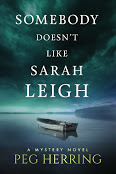 https://books2read.com/u/4AgVOqThe thing is, authors move on. We have new ideas. We dream up new people. But there's no way to tell when a reader will find a book, read it, and get excited for more. My first book was published in 2006. I just saw online where someone ordered it. Yay...but how much of Macbeth's Niece do I even remember?
https://books2read.com/u/4AgVOqThe thing is, authors move on. We have new ideas. We dream up new people. But there's no way to tell when a reader will find a book, read it, and get excited for more. My first book was published in 2006. I just saw online where someone ordered it. Yay...but how much of Macbeth's Niece do I even remember?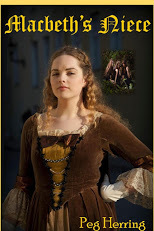 https://books2read.com/u/m0xYdY
https://books2read.com/u/m0xYdY
My newest book, Deceiving Elvera, released on Friday. There are ads for it everywhere, and the introductory price is a bargain, so readers are talking about it. One beta reader suggested I could make it a series. Um, no. Some books are meant to be stand-alones, and this one is...big-time.
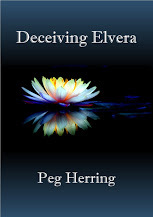 https://books2read.com/u/38RZoB
https://books2read.com/u/38RZoB
The other day a fan wrote to say she wished Maggie Pill (that's me) would consider another Sleuth Sisters book. I said I'd think about it, but it's probably not going to happen.
I remember going to a Peter, Paul, and Mary concert late in their career as a group. They sang songs I'd never heard before, songs they'd written recently, and I left a little disappointed. I'd gone there to hear "If I Had a Hammer" and "Puff, the Magic Dragon," but they were tired of singing those old chestnuts over and over. I get it: creative people want to move on and do something new. Audiences want to recapture the joy they felt the first time they heard/read/saw a creative work. Some authors can make themselves keep adding another episode. I can't.
Then what am I doing? Tweaking the characters for my next mystery, The Cutest Little Killer. I'm thinking this one could be a series, but readers will have a lot to say about that. It's kind of a partnership, at least with independent writers. Authors let readers know what they like to write by putting the books out there. Readers let an author know they want more by buying books, reviewing them, and recommending them to others.
November 11, 2020
The Terrors of Publication
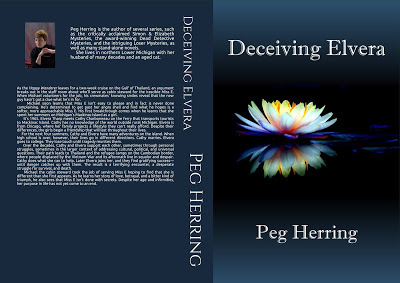 Terror. I'm gripped with terror, I tell you!
Terror. I'm gripped with terror, I tell you!Why? Because it's a little like navigating a minefield, this publishing thing.
*The print cover looks great on Amazon, but it's wonky on Draft 2 Digital (see spine above), and I haven't yet figured out why.
*I have a FINAL final review copy on the way, so I might find a few leftover errors that will now have to be fixed on several sites before December 4th arrives (actually it's earlier than that, because they need time to get the files changed. More like November 30, then.)
*Over the past week, I've slated ads with a half-dozen sites like Great Books, Great Deals and Kindle Daily Nation, so their readers will see the cover and read a bit about the book. Each one is different, and I dread that I might have made some mistake that will screw things up.
*And, of course, there's the everyday author angst: Will they like it?
Into this madness my husband wades, asking the right questions.
So what if some people don't like the book? It's not the end of the world, or even the end of my career.
Most mistakes can be corrected, so we'll take them one at a time (He means I will, but I get it.)
I have two full weeks to examine the final-final review copy. That's plenty of time, and fixing any leftover errors isn't a big deal, just time consuming.
And the cover thing probably just needs me to step away for a while and think about it. I get a little stressed with uploading stuff like that if it needs adjustment. Breathe, Peg, breathe!
So I will get through this, and I LOVE the new book. It's been a two-year project, and I've read it at least a zillion times, but it's been worth it.
So take a look at Deceiving Elvera--not a mystery, so don't expect a murder on page two. Think Kristin Hannah, not Janet Evanovitch.
October 21, 2020
What Are You Working on Now?
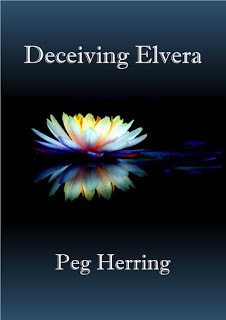
Many writers will agree that the Corona virus has been horrible but also helpful. Afraid to go out, unable to do what we once did, what can we do besides write? Since the virus hit big-time, I've published two books (one as Maggie Pill, one as myself) and worked on one that's been a couple of years in the works and is now with the copy editor for its final corrections. Hoping that will come out before the end of the year, I teased you with the cover above.
The downside to Corona for me is mental. With that and other national concerns, I've had trouble concentrating for any length of time, which means my work gets done in fits and starts. When I stop each day, I feel like the work is disjointed, but when I go back the next day and start reading, it's not. It's one of those, "it's not you, it's me" things. I'm writing the same as usual, but stress makes me feel like things aren't right.
And what am I writing? A book called THE CUTEST LITTLE KILLER. It begins when a private investigator is visited by two children who want their guardian dead. They're offering a very large sum of money to someone who'll take care of that for them.
Don't you love that? I do, but now comes the work. I know of authors who say they write a story once and that's it. I can't believe that's possible, but I won't call anyone a liar. I'll just say that for me, it takes many times through a MS to see what's needed and add it in. I start with a "backbone," the story itself, a plot that keeps the reader interested, holds together, and completes the story arc. Once that's done (on a rudimentary level), I know the characters better, so I go back and build them into the story with depth and background. In this story, readers are supposed to like the kids despite some oddities they exhibit, plus I have to make it acceptable for the reader to root for the success of aspiring killers.
Once I have the backbone and have fleshed out both plot and character, I go through a few more times, adding setting detail, figurative language, little jokes, red herrings, and minor characters. All those things should shine by the time the story is ready, but they aren't apparent to me until I have the main story taken care of. This is when I listen to the computer read my words aloud. It's also where I give a copy to my first reader (for whom I feel sorry, because she never gets to read the final, pretty version). At this stage I'm looking for plot holes, repetition, spots where the wording could be better, or a place for a minor additions that will make the whole thing more intriguing. When I'm done, the work is complete, with a stable structure and attractive additions.
Now it's ready for the editors to pick at, after which I'll read again and change what needs to be changed.
You'll probably read my book once. I've read it around fifty times.

